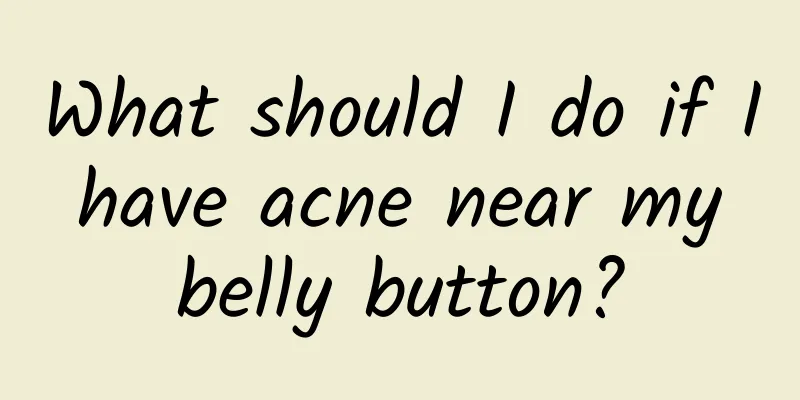What causes bradycardia?

|
Bradycardia refers to a relatively slower heart rate. The most common cause is sinus bradycardia. The main causes of sinus bradycardia are physiological and pathological. If it is pathological, it must be treated in time. Moderate exercise, improved diet, and maintaining an optimistic and cheerful attitude can all help alleviate the problem. If the heart rate is too slow, be alert to the harm caused by some heart diseases to the patient. What causes bradycardia? Bradycardia: A normal heart rate is 60 to 100 beats per minute. A heart rate less than 60 is called bradycardia. There are several types of bradycardia, the most common of which is sinus bradycardia. Sinus bradycardia can be divided into pathological and physiological types. Physiological sinus bradycardia is a normal phenomenon. The general heart rate and pulse are 50 to 60 beats per minute. Athletes may have a heart rate of 40 beats per minute. No treatment is required. It is common in normal people during sleep and those who engage in more physical activities. A heart rate or pulse of less than 50 beats is mostly pathological and requires treatment. In severe cases, a pacemaker may be installed to speed up the heart rate. Workaround 1. For people who do not have any heart discomfort, the pulse rate is between 50 and 60 beats per minute. This sinus bradycardia is mostly physiological, that is, it is a normal phenomenon. There is no need to worry about it affecting your health and no treatment is required. 2. For people who have heart discomfort, pay attention to counting the pulse rate when you are calm, and then count the pulse rate when you feel heart discomfort. If the pulse rate is lower than usual every time you feel uncomfortable, it means that your discomfort is caused by bradycardia and you need treatment. In severe cases, you need to install a pacemaker to speed up your heart rate. You can also check your 24-hour electrocardiogram to see what your heart rate is at its slowest. If the speed of your heartbeat has nothing to do with heart discomfort and your pulse is between 50 and 60 beats per minute, you do not need to treat your bradycardia, but you do need to do other tests to confirm whether you have heart disease. Moderate growth is also healthy In daily life, in addition to slowing down the resting heart rate, moderate exercise to allow the heart rate to increase regularly within a safe range will also protect the heart. If ordinary people can persist in exercising for a long time, they can not only exercise the myocardium and strengthen blood vessels, but also their resting heart rate may drop. During exercise, be sure to keep the heart rate within a reasonable range. Especially for the elderly, the functional levels of various organ systems in the body are showing a downward trend, so they should pay more attention to safety. Generally speaking, it is more appropriate for the heart rate during exercise to be about 20 beats faster than the resting heart rate. If it exceeds this, the intensity should be controlled. The internationally accepted formula: exercise heart rate = 170-age; for weak and older people, exercise heart rate = (170-age)×0.9. For example, for a 60-year-old person, the heart rate is controlled at 110 beats per minute; at a 70-year-old, the heart rate is controlled within 90 beats. In addition, self-perception is also an important indicator for mastering the amount and intensity of exercise. After exercise, you may feel slightly short of breathing, a little heartbeat, a slight fever all over the body, a slightly red face, and slight sweating. Your heart rate will return to normal in about 3 to 5 minutes. There is no persistent fatigue or other discomfort, which means you have exercised moderately. If you have obvious palpitations, shortness of breath, dizziness, and sweating, and your heart rate does not recover after resting for 10 to 20 minutes, and you experience fatigue, loss of appetite, and poor sleep after exercise, then you have exercised too much and should reduce it as appropriate. On the contrary, if you do not sweat after exercise and your heart rate does not change, it is best to increase the amount of exercise moderately. |
<<: I don't feel dizzy when I lie down, but I feel dizzy when I walk
>>: Three situations of fetal heart rate deceleration
Recommend
Women, stop eating this or you may get dysmenorrhea
Dysmenorrhea is not unfamiliar to women. Many peo...
The role of Bletilla striata
Many people envy those who study traditional Chin...
What are the plasters for treating meniscus injuries?
If the meniscus is injured, it is not easy to tre...
What medicine is used for trauma infection
When trauma occurs, if you do not pay attention t...
How does the Yellow Emperor's Classic of Internal Medicine explain men's health preservation?
Men are the mainstay of the unit and the backbone...
Symptoms of pepsin deficiency
The body cannot lack certain elements. When the b...
The causes and consequences of high platelets, these knowledge should be understood
Everyone knows that low platelets can cause a ser...
Chronic appendicitis
In our daily lives, there are many times when die...
How to treat nervous gastropathy
Gastric disease is a common disease nowadays. The...
Causes of convulsions
Convulsions, also known as cramps in daily life, ...
Can tobacco leaves and salt water reduce inflammation?
It is said that folk remedies can cure serious di...
Does Jinkui Shenqi Pill replenish both yin and yang?
Kidney is very important to us, but in our daily ...
How to treat stomach problems
Many modern people suffer from stomach problems d...
How to relieve hallux valgus? Treatment of hallux valgus
The thumb is the shortest finger, but its functio...
Can sweat steaming help you lose weight?
Summer is here and seeing some girls wearing beau...









